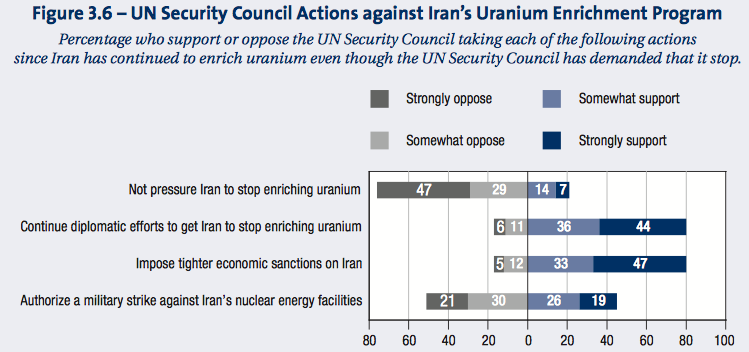The "Middle East Flashpoints" event, organized by The Chicago Council on Global Affairs, involved ample discussion about the current state of the region. The seminar was centered around the Israeli-Palestenian conflict but included some talk about the "nuclear situation" in Iran. Speakers included Shai Feldman, director of the Crown Center for Middle East Studies, Khalil Shikaki, director of the Palestinian Center for Policy and Survey Research, and the moderator, Rachel Bronson of The Chicago Council.
The most interesting point made by the speakers was that the conflict concerning Iran's nuclear program could actually unite some other states in the Middle East because they have a common issue to deal with. Although Israel and Saudi Arabia are not necessarily on the same side of the Iran issue, they could work together to develop a solution. In addition, critics of the new nuclear agreement with Iran say that even though it changes the direction of the nuclear program, the leverage of sanctions is lost.
The chart below was provided at the seminar and is taken from the 2012 Chicago Council Survey of American Public Opinion and U.S. Foreign Policy. It seems that most Americans want the UN Security Council to pressure Iran to stop enriching uranium. The recent deal does have this provision but it is only for enriching up to weapons-grade uranium, not commercially-usable levels. Iran does have a right to enrich uranium for commercial nuclear energy use under the Nonproliferation Treaty. Most Americans probably don't know that.
What are your answers to the poll above?
My Answers
1. Not pressure Iran to stop enriching uranium: somewhat support*
2. Continue diplomatic efforts to get Iran to stop enriching uranium: somewhat support*
3. Impose tighter economic sanctions on Iran: somewhat support
4. Authorize a military struck against Iran's nuclear energy facilities: strongly oppose
*I support the UN Security Council pressuring Iran to stop enriching weapons-grade (not commercial-grade) uranium


 RSS Feed
RSS Feed

